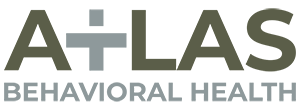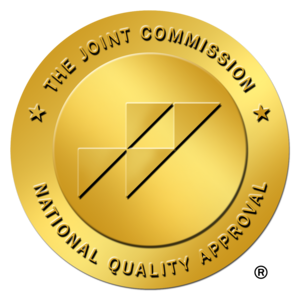Nyquil is a go-to for cold and flu relief, helping people sleep through congestion, coughing, and body aches. But what happens the next day? Many people feel Nyquil side effects next day and wake up feeling groggy, sluggish, or mentally foggy.
If you’ve ever taken Nyquil and struggled to shake off its lingering effects, you’re not alone. Understanding how Nyquil side effects next day impact your body can help you manage them better. And if sleep issues, substance use, or mental health concerns are making recovery harder, Atlas Behavioral Health is here to help.
Common Nyquil Side Effects the Next Day
Many people experience Nyquil side effects next day due to its active ingredients. While it helps with sleep, some of its effects can linger into the morning, making it harder to function normally.
Drowsiness is one of the most reported Nyquil side effects next day. The medication contains doxylamine succinate, an antihistamine that causes sedation. Even after a full night’s rest, some people wake up feeling sluggish and struggle to shake off morning grogginess.
Cognitive issues, like brain fog and difficulty concentrating, can also occur. The slowed processing can make work or school challenging. Some users describe it as feeling “off” or disconnected from their surroundings, which may be worsened if they didn’t get a full eight hours of sleep.
Other common Nyquil side effects next day include dizziness, dry mouth, and mild nausea. These can be side effects of dehydration caused by the medication or the body processing the ingredients overnight. If Nyquil is taken frequently, the next-day effects can become more pronounced, impacting productivity and overall well-being.
Factors That Influence Nyquil Side Effects
Not everyone experiences Nyquil side effects next day the same way. Several factors determine how strongly the medication affects an individual.
One key factor is dosage and timing. Taking a higher dose than necessary or using Nyquil too close to bedtime can extend its effects into the next day. The body needs time to metabolize the medication fully, and late-night doses might not wear off by morning.
Individual sensitivity also plays a role. Some people are naturally more affected by antihistamines and other sedating medications, making them more prone to grogginess or dizziness the next morning. Those with slower metabolisms may experience extended Nyquil side effects next day compared to others who process the medication more quickly.
Mixing Nyquil with other substances can make side effects worse. Alcohol, certain prescription medications, and even caffeine can interact with Nyquil’s active ingredients, amplifying drowsiness or increasing dehydration. People who take multiple medications should always check for interactions to avoid worsening the next-day effects.
How to Minimize Next-Day Nyquil Side Effects
If you rely on Nyquil but want to reduce the impact of Nyquil side effects next day, there are steps you can take to lessen its lingering effects.
Staying hydrated is one of the best ways to counteract symptoms like dizziness, dry mouth, and fatigue. Nyquil can contribute to mild dehydration, so drinking plenty of water before bed and after waking up can help the body process the medication more efficiently.
Adjusting your dosage and timing may also help. Taking Nyquil earlier in the evening rather than right before bed can give your body more time to metabolize the medication, reducing next-day grogginess. If cold symptoms are mild, a lower dose might be enough to relieve discomfort without causing excessive drowsiness.
Planning for extra rest can also make a difference. If possible, schedule a little extra sleep to give yourself time to fully recover from Nyquil side effects next day before starting your day. If Nyquil consistently disrupts your mornings, switching to a non-drowsy cold remedy may be a better option.
When to Seek Medical Attention
For most people, Nyquil side effects next day are mild and temporary. However, some reactions may require medical attention.
If symptoms like dizziness, confusion, or extreme drowsiness persist for more than a few hours, it may indicate that the body is struggling to metabolize the medication properly. This can be a concern for people with liver issues or those taking other medications that interact with Nyquil.
Allergic reactions, though rare, are another reason to seek medical help. Symptoms such as swelling, difficulty breathing, or an irregular heartbeat could indicate an adverse reaction and should be addressed immediately.
Additionally, if someone finds themselves relying on Nyquil regularly to fall asleep or manage stress, it could signal a deeper issue. Sleep disturbances, anxiety, and self-medicating behaviors can be signs of an underlying mental health condition that might require professional support.
How Atlas Behavioral Health Can Help
If Nyquil side effects next day are interfering with your well-being, it may be time to look at the bigger picture. At Atlas Behavioral Health, we help individuals struggling with sleep problems, substance use, and mental health concerns that can contribute to medication dependence.
Our evidence-based therapies like experiential therapy can help you. Also our programs address sleep disturbances, stress management, and anxiety, helping clients find sustainable solutions without relying on over-the-counter medications. Whether you’re experiencing chronic sleep issues or need support breaking free from unhealthy habits, our team is here to provide personalized care in a compassionate, judgment-free environment.
Taking the first step toward better health starts with a conversation. Reach out to Atlas Behavioral Health today to learn how we can support your journey toward lasting wellness.
Taking Control
Nyquil is effective for cold and flu relief, but its next-day side effects can be frustrating. Understanding why Nyquil side effects next day occur and how to minimize them can help you manage your symptoms more effectively.
If you’re struggling with ongoing sleep issues, medication dependence, or mental health challenges, Atlas Behavioral Health is here to help. Contact us today to explore evidence-based treatment options designed to support your well-being.


